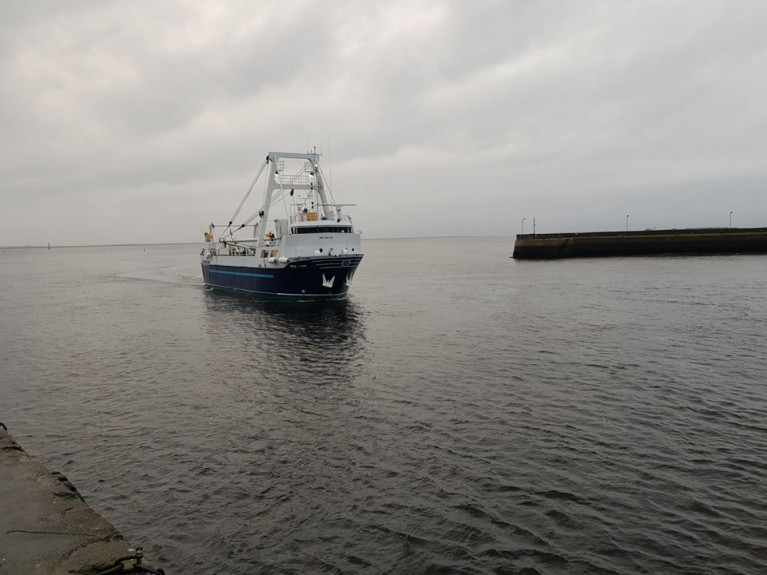Displaying items by tag: Cargoship Service
Inisheer off Co. Galway, at this time of year is normally a hive of activity with bands of tourists alighting from the ferries ready to soak up the peace and quiet. Or they may be arriving for Irish language or art courses or even to swim alongside Dusty the dolphin, whose presence has been absent from the waters for the last few months.
Inisheer, or Inis Oírr, is the smallest and most southerly of the Aran Islands and along with Inishmore and Inishmaan form a northwest-to-southeast barrier of sorts to Galway Bay. The tourist ferries from Rossaveal and Doolin, Co Clare, have ceased operations since mid-March because of the pandemic, but the Lasta Mara cargo ferry run by Rory Beatty and Co (from Galway) has proved a lifeline for the islands.
“We have a wonderful cargo service from Galway. They’ve been extremely facilitative as well. The best of people is coming out,” says Máire Uí Mhaoláin, manager of the Community Development Co-operative on Inisheer.
Aran Island Ferries, run by the O’Briens of Carraroe and the O’Brien and Garrihy ferries from Doolin, has all stopped running trips to the islands in accordance with government regulations.
“They’ve all helped us out by not running tourists to the island,” says Máire. “That was a huge concern for us back in March. We get a lot of tourists, particularly European students travelling at that time of year.”
The subsidised service is still continuing but instead there is one ferryboat servicing the three Aran islands twice a day only for islanders, and only for essential travel.
For more including visits from those in essential services the Irish Examiner reports here.
Freight-only services
Afloat.ie adds Lasta Mara Teo last year introduced second hand tonnage in the form of Fagerfjord from Norwegian owners. The former palletised cargo ship since renamed Saoirse na Mara made its maiden arrival in September to Kilronan Harbour on Inishmore, Aran Islands (see video). Note the hoisted on board vehicles.
The new tonnage joined existing cargoship Bláth na Mara also based out of Galway. In addition they run a former army landing craft Chateau Thierry which operates a ro-ro vehicle (un-accompanied) service but from Rossaveal in Connemara.





























































